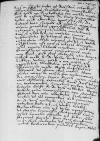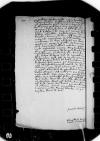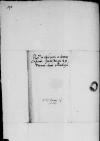Letter #2928
Stanisław HOZJUSZ (HOSIUS) to Ioannes DANTISCUSCracow (Kraków), 1546-03-06
| received Heilsberg (Lidzbark Warmiński), 1546-03-16 Manuscript sources:
Prints:
| ||||||
Text & apparatus & commentary Plain text Text & commentary Text & apparatus
Reverendissimo in Christo Patri et Domino, domino
Reverendissime in Christo Pater et Domine, domine colendissime.
Officiosissimam servitutis meae commendationem.
Fuit apud me
Quae
Cornelius pridem venit. Litteras mihi Reverendisssimae Dominationis Vestrae reddidit neque dubito, quin commissionem iam scriptam habeat una cum mandatis. Terminus, metuo, ut sit commodus. Sed quoniam Reverendissimae Dominationi Vestrae mutandi sive prorogandi potestas data est, ea utatur licebit. Quam ob rem non est visum necessarium, ut iterum commissio scriberetur. Causa ipsius Cornelii cognita est hodie satis frequenti senatu. Bona pars senatorum in ea fuit sententia, ut iusiurandum actori decernendum putaret regia maiestas, concordiam temptari iussit neque decretum est ullum latum. Contra mulieres vero lata est sententia, quod senatus consulto Velleiano gaudere non possint.
De Mevensi praefectura et Sluchoviensi quid actum sit, iam est procul dub[io] istuc allatum. Laboravi pro domino
Soror mea contrahit hodie sponsalia cu[m] domino Petro Daniele consule, quod feli[x] et faustum Deus esse velit.
Deum precor, ut Reverendissimam Dominationem Vestram diu velit esse incolumem et felicem. Cuius me gratiae commend[o].
Eiusdem Reverendissimae Dominationis Vestrae servitor deditissimus


